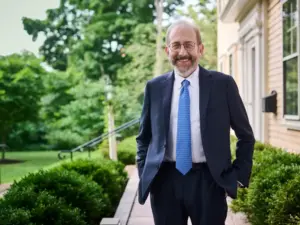The Trump administration's decision to eliminate billions in overhead funding for biomedical research grants has ignited a heated debate among scientists and educators regarding the potential consequences on scientific advancement and public health efforts.
Trump Administration's Biomedical Research Budget Cuts Spark Outcry

Trump Administration's Biomedical Research Budget Cuts Spark Outcry
Proposed reductions to biomedical research funding may hinder scientific progress, warn experts.
In a recent announcement, the National Institutes of Health (NIH) revealed plans to slash funding for "indirect costs" related to biomedical research, such as expenses for facilities and utilities, as part of an overarching initiative aimed at reducing government expenditures. Effective immediately, grant caps for indirect research costs will be limited to 15%, down from the previous average of 30%. This move is projected to save the administration $4 billion.
NIH emphasized the necessity of channeling funds directly towards scientific research, maintaining that "the United States should have the best medical research in the world." Elon Musk, head of the informal Department of Government Efficiency, criticized universities allegedly misusing research funds for excessive overhead, sharing on social media, "Can you believe that universities with tens of billions in endowments were siphoning off 60% of research award money for 'overhead'?"
However, numerous scientists, backed by organizations like the Association of American Medical Colleges, have expressed grave concerns over the funding cuts. The group contended that previous support for indirect costs has been fundamental in enabling critical medical research to thrive. They warn that diminishing federal support in this manner could hinder the nation's research capabilities and inhibit the development of new treatments and preventive measures.
Dr. Anusha Kalbasi, a radiation oncologist at Stanford University, labeled the administration's decision a substantial setback, emphasizing the critical nature of funding for operational costs that facilitate ongoing research. Meanwhile, the American Council on Education has indicated that some laboratories may already be facing operational challenges due to reduced funding.
As the NIH implements these funding restrictions, the President of the American Council on Education, Ted Mitchell, revealed that legal action against the cuts is being considered. The recommendation to cap grant funding for indirect costs was included in Project 2025, a conservative agenda proposed by the Heritage Foundation think tank, underscoring the political backdrop of the recent budget cuts.
NIH emphasized the necessity of channeling funds directly towards scientific research, maintaining that "the United States should have the best medical research in the world." Elon Musk, head of the informal Department of Government Efficiency, criticized universities allegedly misusing research funds for excessive overhead, sharing on social media, "Can you believe that universities with tens of billions in endowments were siphoning off 60% of research award money for 'overhead'?"
However, numerous scientists, backed by organizations like the Association of American Medical Colleges, have expressed grave concerns over the funding cuts. The group contended that previous support for indirect costs has been fundamental in enabling critical medical research to thrive. They warn that diminishing federal support in this manner could hinder the nation's research capabilities and inhibit the development of new treatments and preventive measures.
Dr. Anusha Kalbasi, a radiation oncologist at Stanford University, labeled the administration's decision a substantial setback, emphasizing the critical nature of funding for operational costs that facilitate ongoing research. Meanwhile, the American Council on Education has indicated that some laboratories may already be facing operational challenges due to reduced funding.
As the NIH implements these funding restrictions, the President of the American Council on Education, Ted Mitchell, revealed that legal action against the cuts is being considered. The recommendation to cap grant funding for indirect costs was included in Project 2025, a conservative agenda proposed by the Heritage Foundation think tank, underscoring the political backdrop of the recent budget cuts.






















